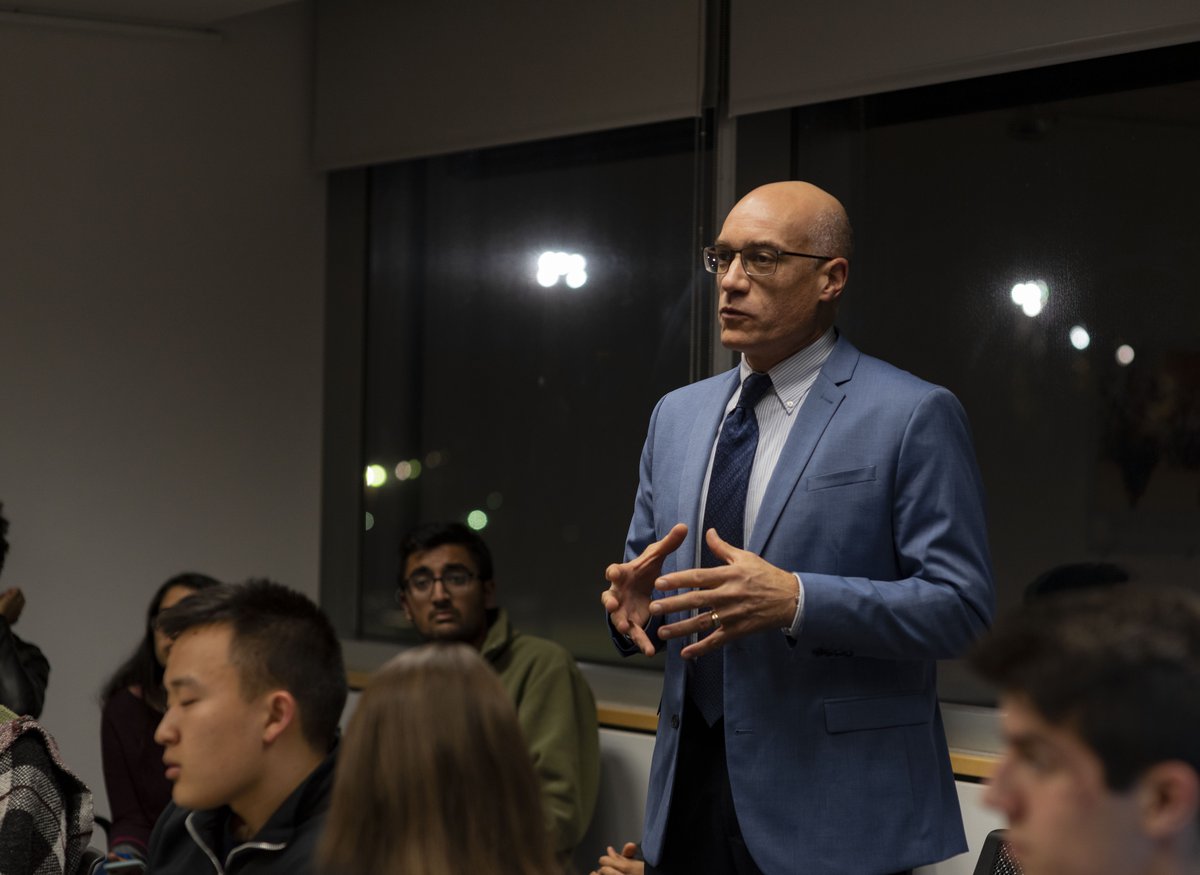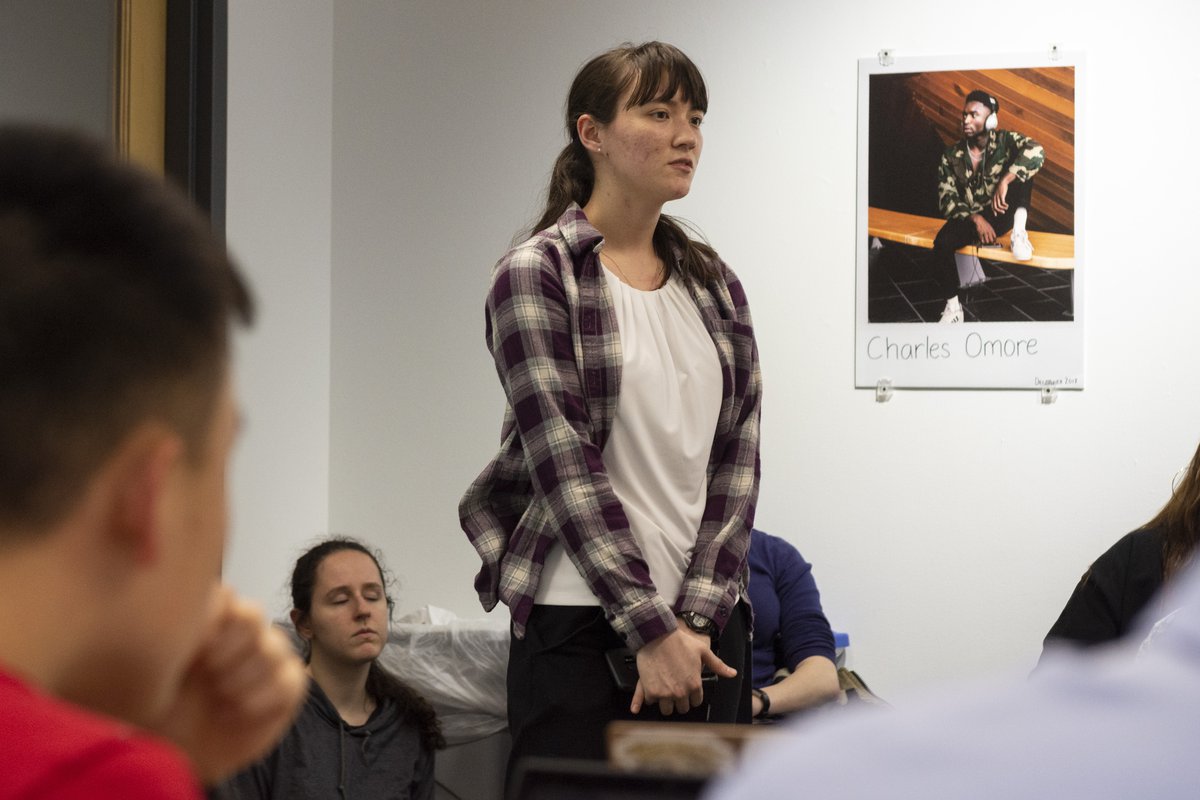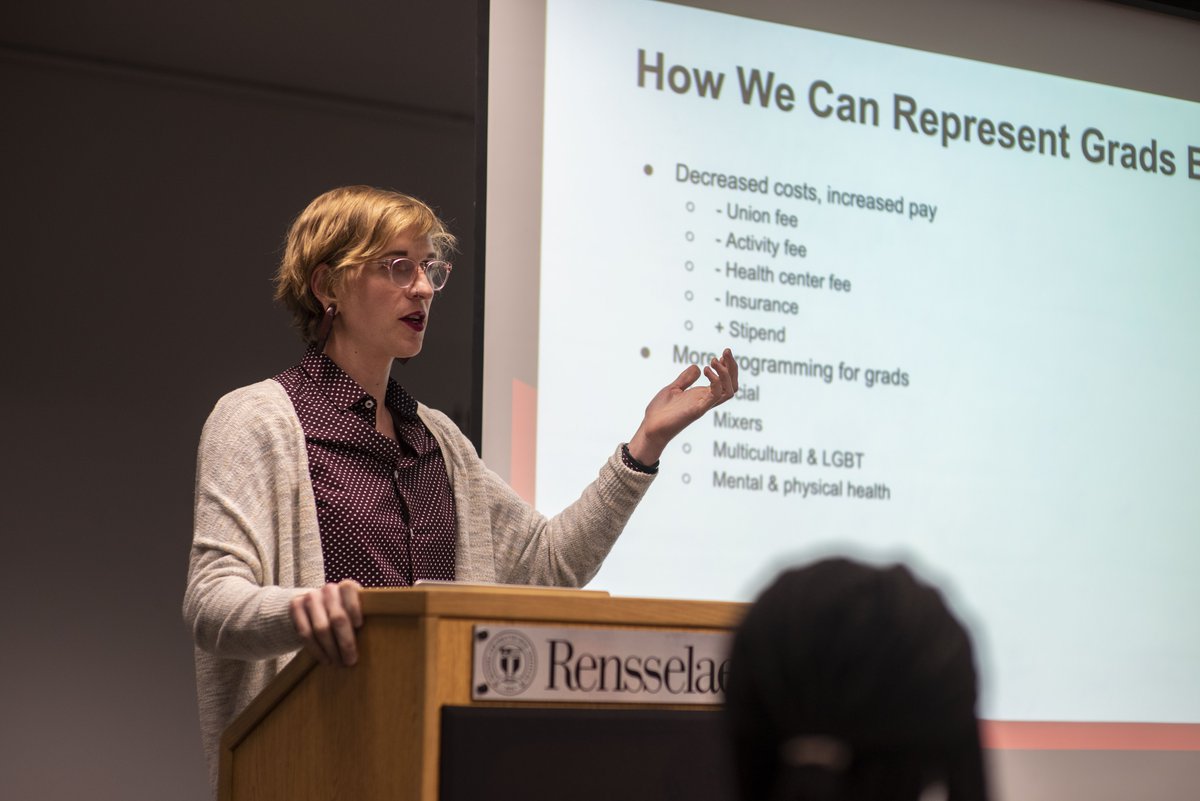Changes made to Counseling Center

The addition of two counselors, drop-in counseling, and the ability for students to book their first appointments online were some of the recent changes to the Counseling Center presented by the Student Life Committee on November 4.
The Counseling Center will be taking steps to allow counselors to see more students and has appointed a new psychiatry director who can prescribe and administer medication.
The Student Life Committee also gave their recommendations on how to improve the state of counseling at Rensselaer.
These changes are the result of a collaboration between the 49th and 50th student senates and are based on the most recent student survey that was conducted in the spring of 2017. This report was presented by Chairperson Maya Ooki '20 and Tahsin Islam '20 of the Student Life Committee. They also announced a one-page report of the data collected by the survey that is currently accessible to the student body.
The aforementioned survey consisted of 18 questions regarding student satisfaction, areas of improvement, and the services that students desired from the Counseling Center. 7,379 students were sent this survey and 500 students responded—a 6.7 percent response rate.
Based on the survey results, the Student Life Committee concluded that approximately 20 percent of the student population at Rensselaer uses counseling services. The results showed that approximately 40 percent of the students who use the Counseling Center are content with the quality of the counseling services, while the rest have expressed grievances with the quality of care; 37 percent of students who no longer use the counseling center left due to unsatisfactory experiences with counselors.
68 percent of respondents who have never used the Counseling Center stated that the reason they do not is that they have heard of another person's negative experience using the Counseling Center.
The survey showed a disparity between the increase in student population and the increase in the usage of the Counseling Center. The increase in the number of students using counseling services was greater than the increase in the student population, which—according to Associate Director of the Student Health Center Kevin Readdean—may be a result of an increase in stressful workloads and a decrease in the stigma around using counseling services.
The recommendations that students gave to the Counseling Center through the survey include the addition of long-term counseling, group counseling, crisis support and assistance, the ability to schedule appointments online, and more counselors. Of these, additional counseling staff and the ability for students to schedule their first appointments online were implemented with the most recent changes.
The Student Life Committee explained that the Counseling Center should acknowledge specific treatment concerns, highlight areas of specialty, and improve the waiting space to reduce students’ anxieties about visiting a counselor. Readdean replied that the Counseling Center is currently working to address the latter issue.
The Student Life Committee recommended that the Counseling Center should use social media to reach out to the greater student body and spread awareness of its services. In an anecdote, Ooki spoke about a student who tried to call the Department of Public Safety during a moment of crisis, could not reach anybody, and ended up not getting the assistance they needed due to a lack of awareness about other methods of contacting for assistance.
The questions that followed this presentation were answered by Readdean.
Graduate Senator Chris Tang asked what measures, if any, had been taken to prevent violations of privacy of the students using the Counseling Center. She referred to an incident in which a former secretary in the Student Health Center allegedly violated the Health Insurance Portability and Accountability Act. Readdean responded that no evidence was found that implicated the employee in question. He added that the Counseling Center has a privacy policy that—while not in accordance with HIPAA exactly—mirrors HIPAA. “We live and die with confidentiality,” said Readdean.
Class of 2022 Senator Jeffrey Chai asked why only the first counseling appointment could be scheduled online and not subsequent ones. After the first appointment, Readdean said, students should then be more comfortable with the people at the Counseling Center to make their next appointments in-person. Additionally, Readdean explained that counselors are committed to 40 first-time sessions per week and did not want their slots to become filled up with follow-up appointments scheduled online.
He called scheduling a “Pandora’s box,” and said that there are nuances and differences in scheduling first appointments and follow-ups. He later said that the Student Health Center wants to work with Pyramid, the software used for scheduling appointments, to create a method so that students can schedule follow-up appointments online in the future.
The Polytechnic asked about what exactly the Counseling Center is doing to improve the quality of care, since 60 percent of students expressed dissatisfaction with the care they received. Islam responded that the Counseling Center is using a more streamlined style of feedback and suggested that students should go to different counselors if they are not satisfied. Readdean elaborated that students will receive an automatic feedback email after their appointments and that the counselors “won’t be offended” if a student decides to change their counselor. Although students cannot currently choose a specific counselor, they can choose their preferred gender for a counselor.
Readdean explained that counselors will be evaluated based on the number of appointments that students schedule with them, and will be scrutinized if their numbers appear to be very low.
Vice President of the Graduate Student Council Audrey Beard inquired about how the Counseling Center tailors care specifically towards graduate students. Readdean replied that the Center is following a more developmental approach and recognized that undergraduates and graduates will have different needs.
The Student Senate meets every Monday at 8 pm in the Shelnutt Gallery.

 Academics
Academics
 Administration
Administration
 Student Senate
Student Senate